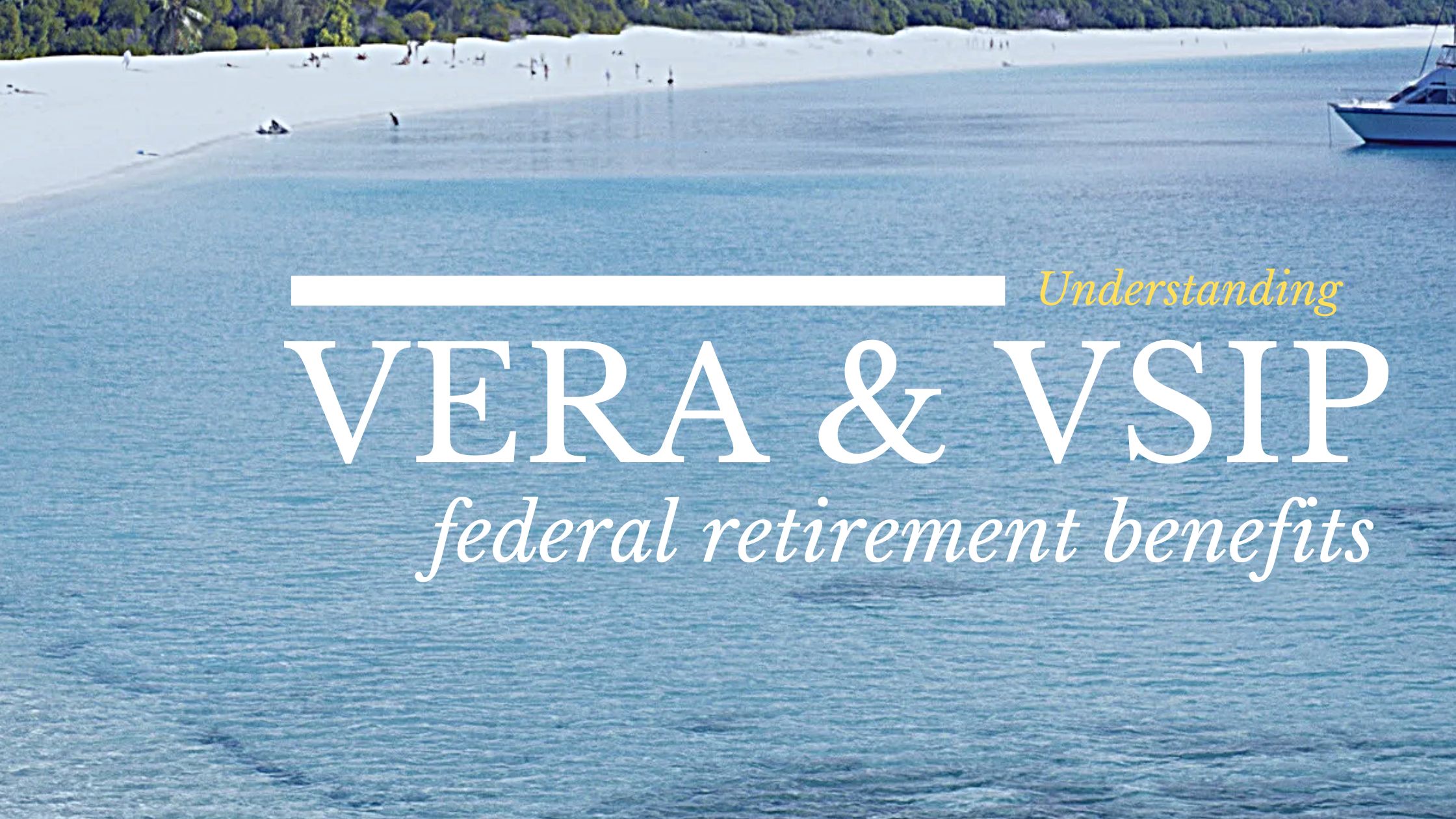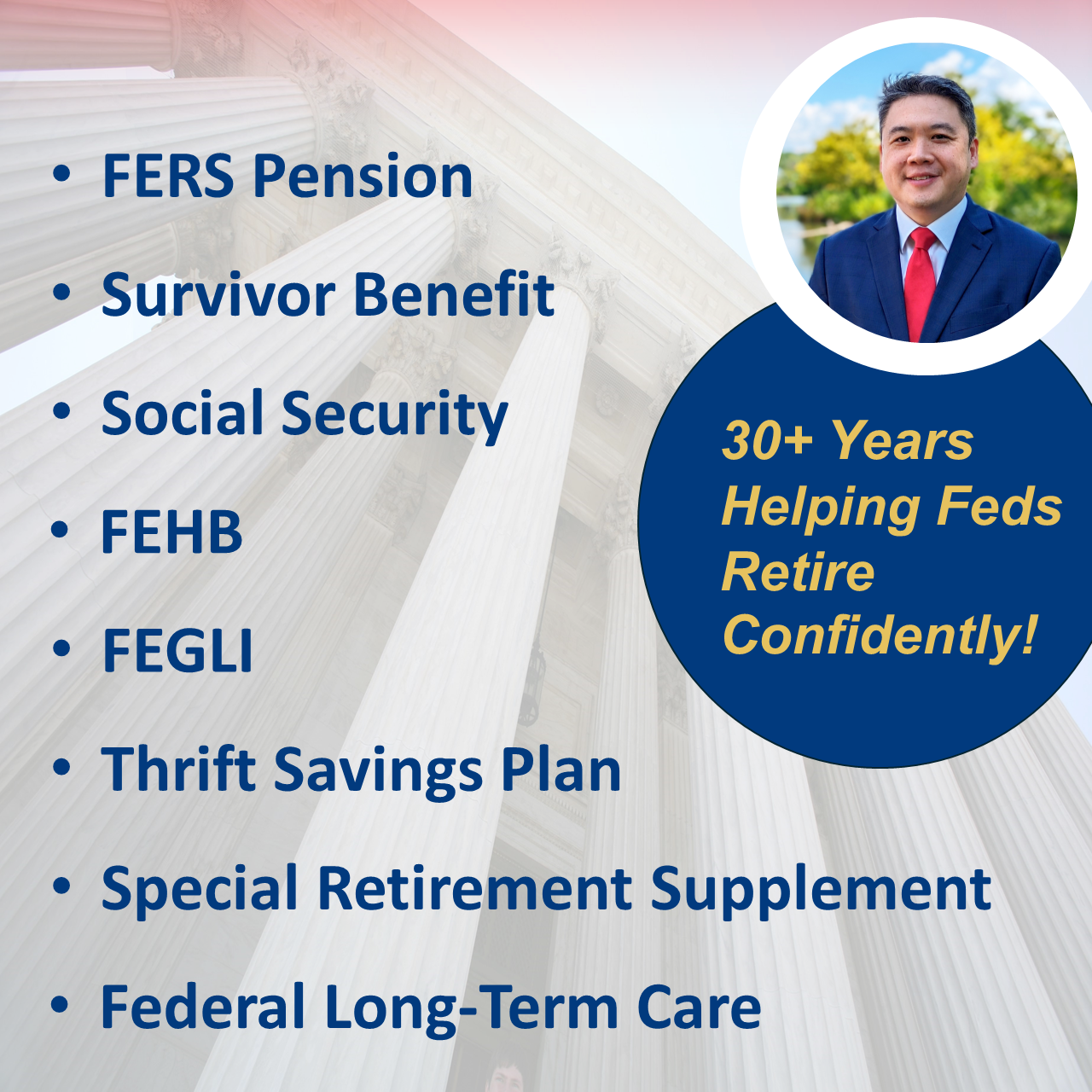Federal early retirement options with VERA & VSIP in 2025. Learn about eligibility, government buyout offers, and how to retire early as a federal employee. VERA offer for FERS employee pension.
Federal VERA Offer & VSIP: Retirement Options for 2025
Thousands of federal employees are contemplating their retirement options, particularly those who have been offered an “early out” under the Voluntary Early Retirement Authority (VERA), with some receiving a Voluntary Separation Incentive Payment (VSIP) if they accept. The VERA program is designed to help federal agencies manage their workforce and provide employees with opportunities to retire early. For federal government workers who lost their job involuntarily, they might still be able to take a discontinued service retirement (DSR).
Retire with Confidence: Should FERS Employees Accept Voluntary Early Retirement Authority (VERA) Offer?
The Voluntary Early Retirement Authority (VERA) is a program that will temporarily lower the age and service requirements to receive a FERS annuity. This allows agencies to allow eligible federal employees to retire early with an unreduced, immediate FERS (Federal Employee Retirement System) pension before reaching the minimum retirement age (MRA, age 55 – 57) or completing the required years of service. VERA is particularly beneficial for federal agencies looking to restructure or downsize their workforce, and due to the recent downsizing of federal agencies, several agencies have recently taken advantage of voluntary early retirement offers to reduce staff. While VERA retirements are technically applicable for CSRS (civil service retirement system) employees, most if not all remaining CSRS workers should be eligible for an immediate pension at this point.
Did your agency offer early retirement? Schedule a meeting to discuss your financial plan.
Eligibility Criteria for VERA Authority in Federal Agencies
Eligibility for VERA is determined by specific criteria set by the Office of Personnel Management (OPM) and the individual federal agency offering the VERA plan. To be eligible for retirement under VERA, a fed must have completed at least 20 years of federal service if they are age 50 or older, or have at least 25 years of service at any age. OPM approval is required for agencies to offer VERA, and the program is typically available during periods of workforce restructuring. Usually, the service requirements in order to retire from federal service with an immediate, unreduced pension, a federal civilian employee needs to be at least their MRA with 30 years, age 60 with 20 years, or age 62 with 5 years of service.
Estimate your retirement income with our FERS retirement calculator.
Impact of VERA on Federal Benefits
Retiring under VERA can have significant implications for federal employee benefits. While employees can collect immediate retirement benefits, the amount may be reduced compared to retiring at the MRA. This is because service years are a factor when calculating your pension amount and if one works longer until reaching MRA or later, they have more years added to their calculation than if they accepted a federal early retirement offer. Also, continuing to work might lead to a higher salary in later years, thus boosting the high-3 average salary. Federal employees who retire under VERA may be eligible for the Special Retirement Supplement (SRS), which bridges the gap until they reach age 62 and qualify for Social Security benefits. However, if you take VERA before age 55 – 57 (depending on the MRA), you will not receive the SRS until reaching MRA. As for health insurance (FEHB benefits) and FEGLI coverage these can continue into retirement, provided the employee meets the eligibility requirements for these benefits.
Regardless of age and even if you are already a retired federal employee, attending an online federal retirement seminar can help you maximize your benefits and enhance your financial plan!
VERA Allows Agencies to Provide Voluntary Separation Incentive Payment (VSIP)
The Voluntary Separation Incentive Payment (VSIP), commonly known as a buyout, is a financial incentive offered to federal employees to encourage voluntary retirement or resignation. Facing pressure to reduce the federal workforce, several federal agencies are using VSIPs in 2025 to reduce their workforce size without resorting to involuntary separations. Several agencies are requesting the authority to offer such payments. VSIPs are different from the deferred resignation buyouts that were offered back in February and then again in April at several agencies. The main difference between the newest offer and the first one is that regular pay continues until December 31 and not September 30, but only if they don’t choose to retire by the earlier date. VSIPs are a different type of buyout, providing a taxable one-time lump sum up to $25,000. (With OPM approval, agencies may have the authority to offer a higher VSIP.)
Pros and Cons of Accepting VERA and VSIP for Early Retirement
Deciding to take VERA and VSIP for early retirement requires careful consideration of various factors, including financial needs, career goals, and personal circumstances. Before leaving federal service, it is important to comprehend the benefits and challenges of ending your federal employment earlier than expected. Making the right choice depends on the individual’s situation and retirement objectives.
Factors to Consider When Choosing Between VERA and VSIP
When choosing to accept a VERA and VSIP, federal employees should consider factors such as their eligibility for each program based off age requirement and creditable service, the impact on their pension and annuity, and the changes to life insurance and health benefits coverage in retirement. With health insurance benefits, insurance premiums are no longer paid with pre-tax dollars. FEGLI premiums depend on age, not retirement status, but the choice to keep, reduce, or drop FEGLI must be made when applying to OPM. Additionally, employees should assess their financial readiness for retirement, including retirement savings and potential income from Social Security.
Consulting a Federal Employee Benefits Expert
Consulting a federal employee retirement benefits specialist can provide valuable insights and guidance when deciding to accept VERA and VSIP offers. The experts at PlanWell can help federal employees understand the nuances of each program, evaluate their retirement plan, and assess the long-term implications of early retirement. By working with a knowledgeable advisor, federal employees can make informed decisions that align with their retirement goals and financial needs.
What are the Financial Implications of Retiring Early Under VERA or VSIP?
Retiring early under VERA or VSIP can have significant financial implications, particularly concerning the FERS pension, Social Security benefits, and health insurance coverage. Understanding these impacts is crucial for federal employees planning to retire early. The FERS pension is a critical component of a federal employee’s retirement income. Retiring early under VERA or VSIP may result in a reduced pension, as employees will not accrue additional years of service. The reduction in pension benefits can affect the employee’s overall retirement income and financial security. It is important for employees to calculate the potential impact on their pension and consider how it fits into their broader retirement plan. With the TSP, a federal employee who retires before 55 will have to wait until age 59 and 1/2 to avoid the IRS early withdrawal penalty, but regular FERS employees who retire at 55 or older can start making penalty-free TSP withdraws. If retiring under special provisions, you must be at least 50 years old with 20 years or any age with 25 years of service to enjoy this benefit.
What are the Key Considerations for Federal Employees Planning to Retire in 2025?
Federal employees planning to retire in 2025 should consider several key factors, including preparing for retirement, evaluating their retirement plan, and understanding the role of OPM in federal retirement. These considerations are essential for ensuring a smooth transition into retirement. A fed that retires before age 55 will need a financial plan due to the TSP age penalty and that MRA is age when they can collect the SRS.
Evaluating Your Retirement Plan and Options
Evaluating your retirement plan and options is crucial for making informed decisions about retirement. Federal employees should consider the benefits and drawbacks of VERA and VSIP, as well as other retirement options available to them, like deferred or postponed retirement options. Understanding the financial implications of each option and how they align with personal retirement goals is essential for successful retirement planning.
Reach Out to Us!
If you have additional federal benefit questions, contact our team of CERTIFIED FINANCIAL PLANNER™ (CFP®) and Chartered Federal Employee Benefits Consultants (ChFEBC℠). We also hold the Accredited Investment Fiduciary (AIF®) designation. At PlanWell, we are federal employee financial advisors with a focus on retirement planning. Learn more about our process designed for the career fed.
Preparing for federal retirement? Check out our scheduled federal retirement workshops. Sign up for our no-cost federal retirement webinars using helpful online training. Make sure to plan ahead and reserve your seat for our FERS webinar, held every three weeks. Want to have PlanWell host a federal retirement seminar for your agency? Reach out, and we’ll collaborate with HR to arrange an on-site FERS seminar.
Want to fast-track your federal retirement plan? Skip the FERS webinar and start a one-on-one conversation with a ChFEBC today. You can schedule a one-on-one meeting through our online form.










